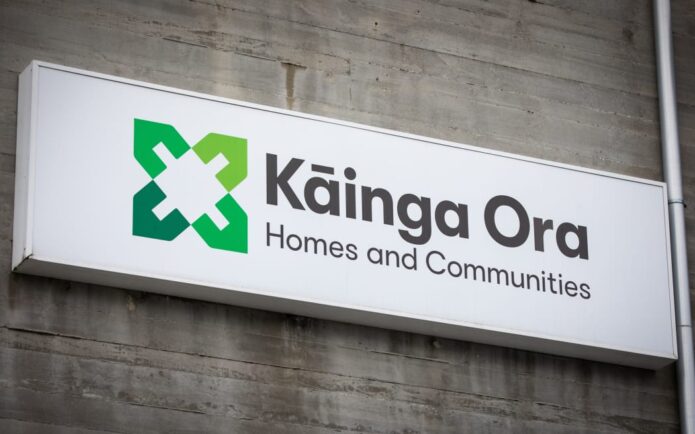PHOTO: The Reserve Bank of New Zealand. RNZ
Recession Concerns in New Zealand Could Spell Relief for Homeowners in 2024
New Zealand’s economy is showing signs of significant contraction, with GDP figures painting a concerning picture. Stats NZ recently reported that the country’s gross domestic product (GDP) dropped by 1% in the September quarter, following a 1.1% decline in the previous quarter. Excluding the economic turmoil of Covid-19 lockdowns, this marks the most substantial drop since 1991. While this presents challenges for the broader economy, it could also signal a silver lining for homeowners in the form of falling interest rates.
Economic Decline Sparks Interest Rate Speculation
The economic slowdown has sparked discussions among leading economists about the Reserve Bank of New Zealand’s (RBNZ) likely response. Historically, periods of economic contraction prompt central banks to lower interest rates to stimulate growth. This scenario seems plausible for New Zealand as well, with many experts predicting that the RBNZ might accelerate its interest rate cuts.
Westpac’s chief economist, Kelly Eckhold, noted that the sharp economic downturn had reduced the economy’s excess capacity more significantly than anticipated. He believes the RBNZ may feel less compelled to maintain high interest rates, a stance that could benefit borrowers.
“It’s logical to think this economic data might lead to faster interest rate reductions than previously expected,” Eckhold explained. “The 50 basis point cut anticipated in February is already substantial by historical standards, but there’s room for further movement depending on how the economy evolves.”
Eckhold stopped short of describing the current economic situation as a crisis, emphasizing that while the decline is significant, it does not yet mirror the severity of past financial crises.
Calls for Aggressive Rate Cuts
Kiwibank’s chief economist, Jarrod Kerr, has called for a more aggressive approach to rate cuts. He suggests a 50 basis point cut in February should be followed by three additional 25 basis point reductions in the months ahead.
“There’s a gaping hole in the economy that we haven’t seen since 1991, outside of lockdown periods,” Kerr said. “The Reserve Bank needs to act decisively and bring rates back to at least neutral, if not into stimulatory territory.”
Such moves could significantly impact mortgage rates, offering much-needed relief for homeowners and potential buyers as borrowing costs decrease.
ANZ Predicts Possibility of Larger Rate Cuts
ANZ economists also acknowledged the possibility of steeper cuts to the Official Cash Rate (OCR). While they still consider a 50 basis point cut the most likely outcome in February, the prospect of a 75 basis point reduction is now on the table, depending on upcoming economic data.
Key indicators to watch include the Quarterly Survey of Business Opinion (QSBO), labor market data, and the Consumer Price Index (CPI). ANZ noted that any dovish surprises in these areas could push the RBNZ toward more aggressive rate cuts.
“Three consecutive 50 basis point cuts would already represent a rapid shift,” ANZ economists stated. “The focus now is on where the OCR ultimately lands.”
What This Means for Homeowners and Borrowers
For New Zealand homeowners, falling interest rates could provide much-needed financial relief. Lower borrowing costs make mortgages more affordable, potentially easing the financial burden for existing homeowners and opening doors for first-time buyers.
This could also lead to increased activity in the housing market, as buyers take advantage of more favorable lending conditions. However, the broader economic challenges mean that any gains in the housing sector need to be weighed against potential risks, such as rising unemployment or declining consumer confidence.
A Balancing Act for the Reserve Bank
The RBNZ now faces the delicate task of balancing its mandate to control inflation with the need to support economic growth. The February Monetary Policy Statement will be closely watched for insights into the central bank’s strategy moving forward.
With the economy slowing more sharply than anticipated, the next few months will be critical in shaping the financial landscape for New Zealand households and businesses alike.
As New Zealand grapples with its most significant economic contraction in decades, the potential for lower interest rates offers a glimmer of hope. While the path forward remains uncertain, the actions of the Reserve Bank will play a crucial role in determining how the country navigates these challenging times.
For homeowners, this could mean the opportunity to lock in lower mortgage rates and secure greater financial stability in 2024. As always, staying informed and proactive will be essential for navigating the evolving economic landscape.
This period of economic adjustment serves as a reminder of the interconnectedness of the housing market, monetary policy, and broader economic health. For now, all eyes are on the Reserve Bank as it prepares to chart the course for New Zealand’s recovery.
SOURCE: RNZ













